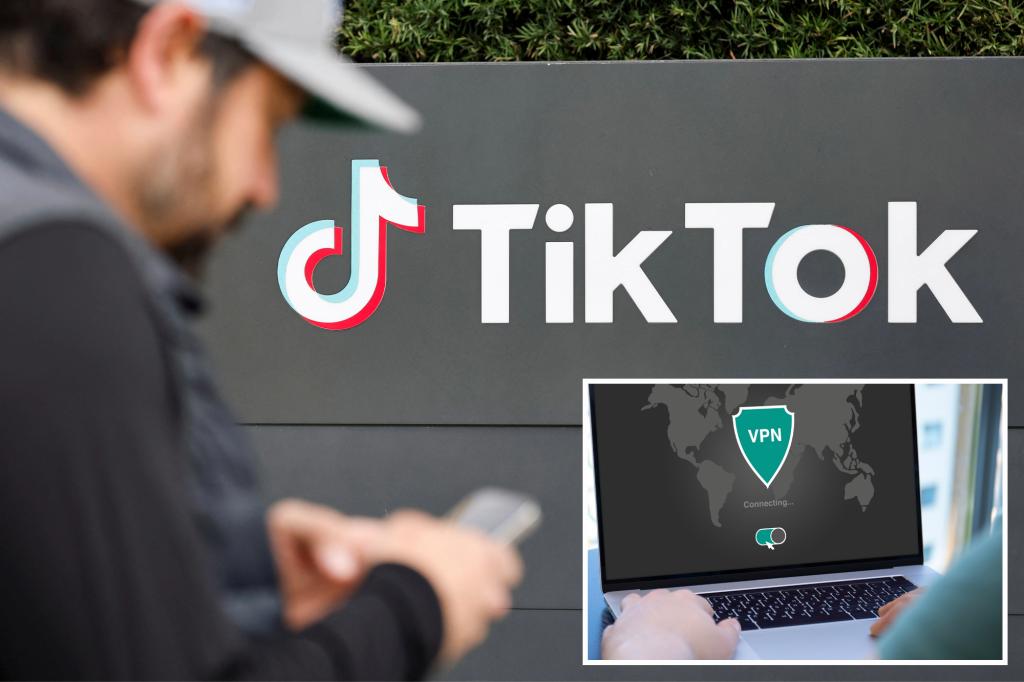The popular social media platform TikTok, known for its short-form videos and a massive user base, vanished from American app stores and devices on Sunday, leaving millions of users distraught and scrambling for solutions. The ban, enacted through a law passed by Congress and upheld by the Supreme Court, stemmed from concerns over the app’s ownership by the Chinese company ByteDance, raising fears about potential data security risks and influence from the Chinese government. Unlike bans in other countries where virtual private networks (VPNs) often provide a workaround, TikTok implemented a more robust block, effectively rendering VPNs useless for most American users. This unprecedented move underscored the seriousness of the situation and the determination to enforce the ban.
Users who had become accustomed to bypassing geographical restrictions with VPNs to access content unavailable in their region found themselves unexpectedly locked out of their favorite platform. The usual methods of masking one’s location proved futile, with TikTok seemingly detecting and blocking access even when users appeared to be connecting from countries where the app remained operational. The frustration was palpable across social media platforms like X (formerly Twitter) and Instagram, where users lamented the ineffectiveness of VPNs and shared their disappointment. The realization that even creating new accounts while connected to a VPN wouldn’t work if the account was tied to a US location further compounded the sense of defeat among users desperately seeking a way back onto the platform.
The effectiveness of TikTok’s ban highlights the sophisticated technical measures implemented to ensure compliance with the US law. Unlike previous instances where VPNs could easily circumvent restrictions, TikTok’s shutdown appeared to be deeply integrated into the app’s infrastructure. The ban extended beyond simply blocking IP addresses associated with the United States; it seemed to be tied to individual accounts and their associated registration information. This meticulous approach significantly hampered efforts to bypass the restrictions and demonstrated a commitment to adhering to the legislative mandate. The experience echoed the app’s withdrawal from Hong Kong following the implementation of national security laws, suggesting a similar strategy for addressing politically sensitive situations.
The situation contrasted with previous instances of government-imposed restrictions on social media platforms. In countries like Iran, China, and Russia, where governments routinely limit access to certain online platforms, VPNs have become an essential tool for citizens to maintain access to information and communication. These tools allow users to appear as though they are connecting from a different location, effectively bypassing censorship and firewalls. However, TikTok’s approach in the US rendered these common circumvention methods ineffective, significantly impacting the user experience and highlighting the evolving nature of online censorship and control.
The TikTok ban and the subsequent failure of VPNs to provide access raise several crucial questions about the future of internet freedom and the increasingly complex relationship between governments and technology companies. The effectiveness of the ban demonstrates the growing ability of governments to control access to online platforms and information, even in countries with strong traditions of free speech and open internet access. This raises concerns about the potential for similar actions against other platforms in the future and the implications for the free flow of information online. Furthermore, the situation highlights the challenges posed by the global nature of the internet and the difficulty of balancing national security concerns with individual rights and freedoms.
The future of TikTok in the US remains uncertain. While some users explored workarounds, like creating accounts outside the US and accessing the platform through a VPN on a computer, the vast majority remained locked out. The situation served as a stark reminder of the power dynamics at play between governments and technology companies, and the impact of geopolitical tensions on the digital landscape. The long-term consequences of the ban remain to be seen, but it has undoubtedly left a significant void in the American social media landscape, prompting users to seek alternative platforms and grapple with the implications of increased online regulation and control.















